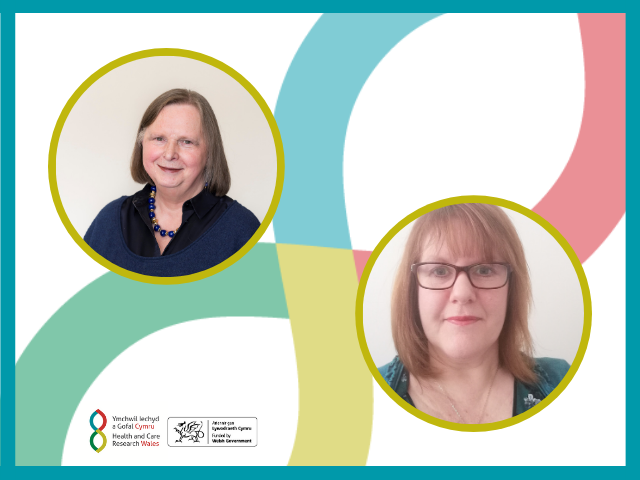
Welsh members of the public help launch new report showing importance of involving patients in COVID-19 research
13 January
Welsh members of the Health and Care Research Wales Involvement Community helped launch a new report which shows how involving patients in the design of studies is crucial to COVID-19 research.
Adele Battaglia from Newport and Mari James from Pembrokeshire, are two of the public members who contributed their time and lived experience to a new report led by the Health Research Authority (HRA).
The report, Public involvement in a pandemic: lessons from the UK COVID-19 public involvement matching service, shows how patient and public involvement in COVID-19 research improves the research as well as demonstrating value, both in terms of recruiting patients to trials and retaining them.
At the start of the pandemic just 22 % COVID-19 studies applying for fast-track approval from the HRA had consulted patients in the design of their study.
The HRA worked with partners across the UK, including Health and Care Research Wales, to set up a COVID-19 matching service which linked researchers with public contributors. These contributors provided feedback and input into COVID-19 research studies at speed, before they came to the HRA for approval and funding. This service, along with other interventions, has helped improve patient involvement and by August 2020 over 85% of COVID-19 studies were involving patients, helping to improve the quality of health and social care research.
Both Adele and Mari are members of the Health and Care Research Wales Public Involvement Community and have been involved in the COVID-19 public matching service and spoke at a virtual conference to launch the report on 13 January.
Adele, who is also a former midwife/nurse and NHS educator, said, “Involving patients adds to the credibility of COVID-19 studies and helps to bolster the research.
“If you want patients or the public to be involved in your study, they need to understand you and not find the information daunting. I’ve been able to help by commenting on the patient documentation and suggesting tweaks to terminology and research jargon.”
Mari James, who took part in the matching services and is Chair of the Health and Care Research Wales Primary and Emergency Care Service Users Group said, “I got involved as a public contributor, part of the Health and Care Research Wales Public Involvement Community, after being a carer for my late mother at home in her last years. I wanted to use some of this lived experience to help design research in palliative care and other health areas.
“When I was sent the first piece of patient documentation for COVID-19 medication trials to review, the timetable was tight but we worked quickly to add feedback. The patient information was quite daunting and dense. It would not have been helpful to give it to vulnerable patients at a sensitive stage of the illness. I was able to make recommendations to help make it easier for patients to handle.
“I hope more researchers will understand the benefit of involving patients and members of the public in their research.”
The HRA and Health Care Research Wales is calling on more sponsors and funders to play their part insist on patient involvement in their COVID-19 and other health and social care research studies.
Rebecca Burns, Public Involvement Manager at Health and Care Research Wales said, “We really saw the importance of supporting the HRA in this national effort to ensure good public involvement for COVID-19 research, to ensure meaningful and impactful outcomes.
“We had adjusted our processes in Wales to work responsively and rapidly and wanted to share that experience so people living in Wales had the opportunity to get involved and for a Wales perspective to be heard.”
Juliet Tizzard, Director of Policy and Partnerships at the HRA, said, "The collaborative effort to establish and run the matching service has demonstrated that the system has the capacity to respond appropriately to support the involvement of the public proportionately and effectively regardless of the circumstances.
"It showed that with effective system-wide collaboration, communication and information, public involvement was able to become ‘business as unusual’. If that can be maintained, then there is no reason why public involvement should not be business as usual for the sponsors and funders of all health and social care research in the UK."